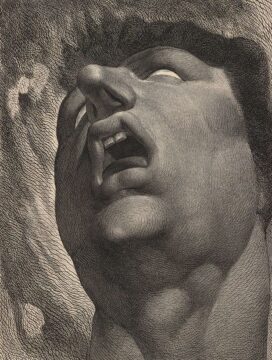by Christopher Horner
Become That which You Are —Nietzsche.

What is it to lead a free life? Perhaps it is doing what we want with the minimum of external constraints, so we can follow our desires. Also to be free from anything within us that would prevent us from choosing wisely and acting effectively. I don’t want to bungle an action, I don’t want to get things wrong that might lead me to misread a situation, and I don’t want to be knocked off track by some outburst of the irrational, blind anger or a neurotic compulsion that reaches me from my past. The ideal of a free life includes in it the notion that I can to identify with my actions as my own, to stand by them, as it were.
We picture the rational self that wills, as somehow brightly lit in the conscious mind: I know, I choose, I act, and I say: I did that. The darkness is in the unconscious, and we need the light to choose freely. However, this image of the free self is at best incomplete. [1] We know that we are being pushed in all sorts of ways, even – perhaps especially – when we think we are making a free choice. I choose A over B: to marry or not; to go on holiday here and not there; to go for a walk; to buy that laptop. Are these free, independent choices? How did I come to have just these desires, here and now? My desire for A over B was conditioned by who I came to to be, and my goals are embedded in my biology and in my place and time in history. Since desires aren’t simple and basic can I say I am free when I act on them? If not it would appear that responsibility, and the praise or blame that goes with it, are just empty words.
‘Ought implies can’
The phrase comes from is Immanuel Kant, who was much exercised by the question, as he saw that morality implies freedom. Since my reasons for doing something are also causes, and are the outcomes of the push and pull of social life, it looks like my inclinations are anything but free, if we imagine that to mean that I could have chosen to do something else. We may feel free, but that isn’t proof that we are free. Read more »
